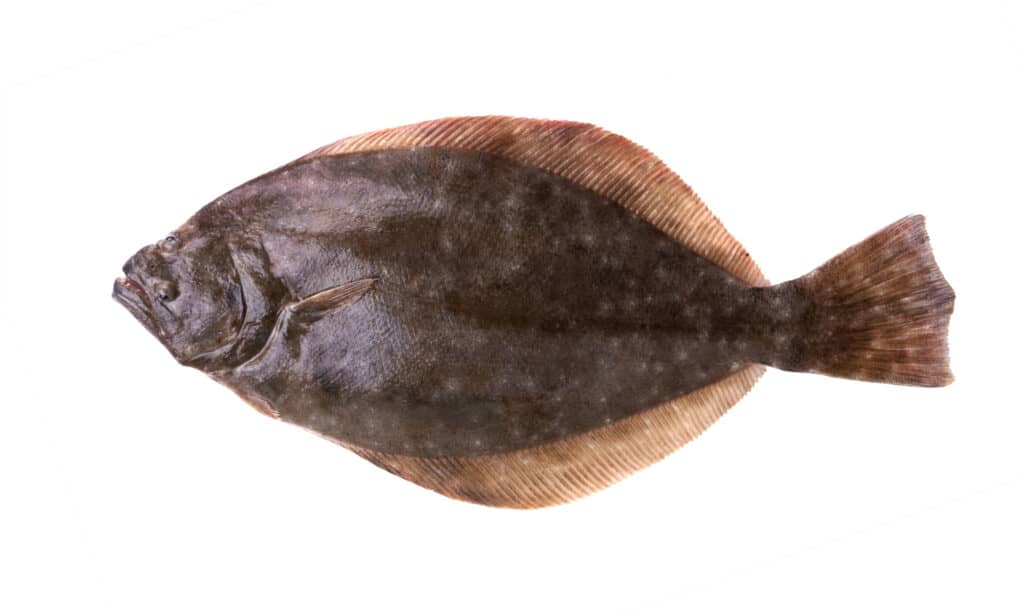Tuna is a healthy staple that many people enjoy on a regular basis. Although it may be healthy for us, there are a few things you should be aware of before you feed some to your dog. Read on to learn more about whether or not you should feed tuna to your dog, as well as the risks associated with it.
Is Tuna Safe for My Dog to Eat?

You should not feed your dog tuna.
©Rich Carey/Shutterstock.com
Simply put, you should not feed your dog tuna, as it may put your dog’s health at risk. Although tuna is healthy for people to consume, it should not be given to dogs. Even though tuna is rich in many nutrients including omega-3 fatty acids, magnesium, protein, and B vitamins, the risks it carries for your dog are not worth the benefits. Let’s take a look at some of the reasons why tuna is not safe for your dog to eat:
High Mercury Levels
You may already be aware that some fish, especially tuna, contain high levels of mercury. This is one of the reasons why tuna isn’t safe for your dog to eat. When dogs eat tuna they are put at risk of developing mercury poisoning. Even people should be careful about how much tuna they eat, as we can develop mercury poisoning as well. But what exactly is mercury? Mercury is an element that occurs naturally. It can be found in water, food, and the air.
Fish are exposed to mercury through the water as they eat. Also, the larger a fish is, and the longer its lifespan, the higher the levels of mercury it is likely to contain. This is because the fish will have much more time to absorb and consume larger amounts of mercury throughout its life. Tuna are large fish. They also can have very long lifespans. Some tuna are able to live between 40-50 years! Unfortunately, this also means that they are some of the fish that contain the highest levels of mercury, and caution should be used when consuming.
Fish Bones
Any type of fish runs the risk of containing fish bones, although suppliers always try their best to inspect and remove any bones before the fish is sent out to the market. Unlike the bones in other meat, fish bones are very small and thin which makes them very easy to miss. Although every effort is taken to remove the bones, there is always the chance that you may encounter bones in your fish. This can be very dangerous for dogs. They can get lodged in your dog’s mouth, throat, or stomach, and in some cases, they can even puncture organs. This can be very painful for your dog and may require veterinarian care. If you plan on feeding your dog any other type of fish that is safe, it’s important that you inspect it yourself first to be sure that there are no bones in it. All bones should be removed before serving fish to your dog in order to ensure its safety.
What Are the Signs of Mercury Poisoning?

Dogs can develop a variety of symptoms when sufferening from mercury poisoning.
©iStock.com/igorr1
Given that tuna is high in mercury, it is important to be aware of the signs of mercury poisoning, in case your dog consumes some. Here are some of the common signs of mercury poisoning:
- Tremors
- Vomiting
- Diarrhea
- Nervousness
- Abdominal swelling
- Difficulty urinating
- Poor coordination
- Loss of vision
- Hair loss
If your dog begins displaying any of these symptoms after consuming tuna, you should get them to the vet immediately for treatment. These signs can begin to develop after the mercury has accumulated within their body after long-term consumption and is not likely to occur after the first time they consume it.
What Do I Do if My Dog Has Eaten Tuna?
If you suspect that your dog has eaten tuna, don’t panic. Tuna in small amounts and on very rare occasions is not toxic to dogs. So if your dog has snagged a bite or two unexpectedly, there should be nothing to worry about. However, if you believe your dog has eaten a more sizable portion, you want to get in contact with your veterinarian immediately, as they may be at risk of mercury poisoning.
What Types of Fish Are Safe for Dogs to Eat?

You can feed your dog with flounder.
©IrinaK/Shutterstock.com
Not all fish contain high levels of mercury, so there are some that you can safely feed your dog. Generally, dogs can eat flounder, salmon, herring, catfish, cod, whiting, or whitefish without any issues. These fish are not as high in mercury and are less likely to cause any issues for your dog. If you want to feed your dog fish, you should opt to feed your dog one of those, as they are safer options.
Health Benefits of Fish for Dogs
Aside from the risks that some fish may pose to dogs due to mercury content, fish that are safe for dogs to consume can bring your dog wonderful health benefits. For starters, fish is an excellent source of protein for dogs. Dogs need protein in their diet to keep their bodies functioning properly. Protein also contains essential amino acids that help contribute to your dog’s healthy skin, hair, and muscle development. It can also help repair any tissue damage your dog may have.
Protein is crucial when it comes to maintaining certain bodily functions like making hormones, supporting the immune system, and maintaining and repairing cells. It’s also great for keeping your dog’s energy levels up which can help them live a more active lifestyle even into old age.
Fish is also a rich source of omega-3 fatty acids which can help reduce inflammation. This is great for any dogs that may be suffering from things like arthritis which is an inflammatory disease. It also makes a great replacement for other meat-based protein sources like chicken, which some dogs may have an allergy to.
How to Prepare Fish For Your Dog
If you decide that you would like to prepare one of the safe fish options for your dog, it’s important to know the best way to prepare it so that it remains safe for them. We cannot serve fish to dogs in the way that we may consume it, because a lot of the preparations we take when preparing fish would make it highly unsafe for dogs to consume.
The best way to prepare fish so that it is safe for dogs is to cook it plain without any added seasonings, salt, or oils. Seasonings like onion and garlic may be tasty and add flavor to a meal, but they are both toxic to dogs and should be avoided completely. You can serve the fish by itself or you can chop it up and add the pieces to your dog’s food bowl alongside its healthy dog food.
Other Dog-Safe Foods to Consider
The photo featured at the top of this post is © Prostock-studio/Shutterstock.com
Ready to discover the top 10 cutest dog breeds in the entire world?
How about the fastest dogs, the largest dogs and those that are -- quite frankly -- just the kindest dogs on the planet? Each day, AZ Animals sends out lists just like this to our thousands of email subscribers. And the best part? It's FREE. Join today by entering your email below.
Sources
- PetMD, Available here: https://www.petmd.com/dog/nutrition/evr_dg_can-dogs-eat-fish
- PetCo, Available here: https://www.petco.com/content/petco/PetcoStore/en_US/pet-services/resource-center/food-nutrition/can-dogs-eat-tuna.html
- PetMD, Available here: https://www.petmd.com/dog/nutrition/evr_dg_can-dogs-eat-fish
FAQs (Frequently Asked Questions)
How much tuna can I give my dog?
Tiny amounts of tuna on a rare occasion are fine, but tuna is not recommended for dogs on a regular basis.
Can dogs eat tuna in oil?
No, it is not recommended that you feed your dog tuna in oil. Tuna packed in oil can cause weight gain and pancreatitis.
Can I mix tuna with my dog's food?
No, it is not recommended that you feed your dog tuna. You can, however, mix other safe fish like cod, salmon, or herring in your dog’s food.
Thank you for reading! Have some feedback for us? Contact the AZ Animals editorial team.






